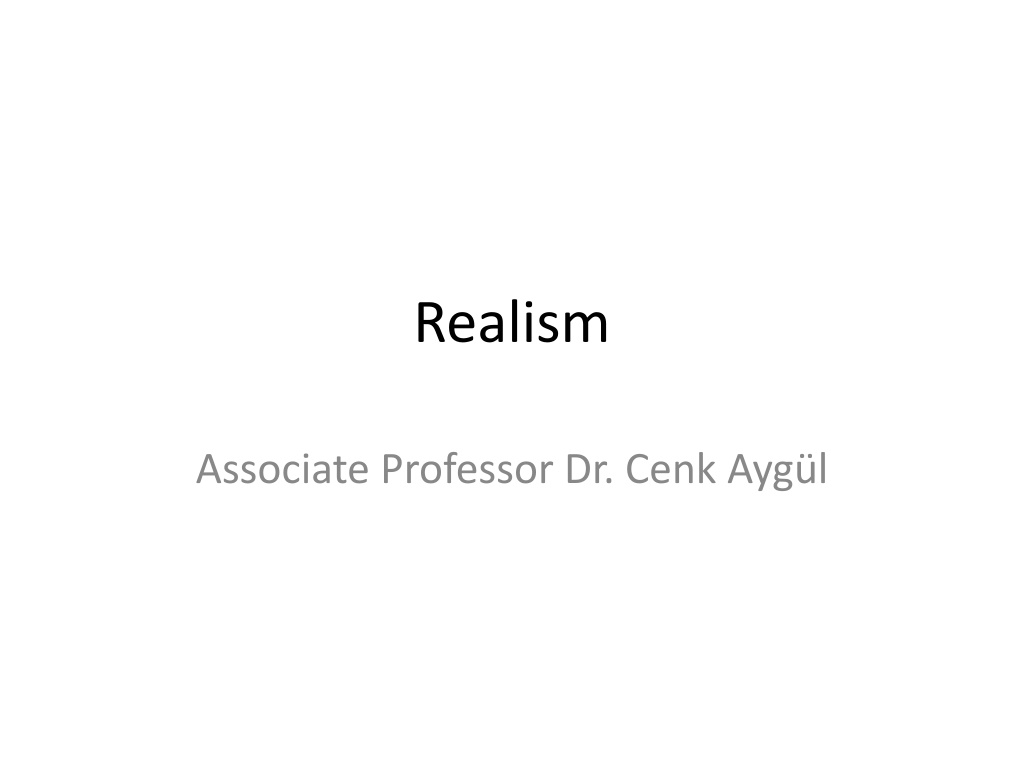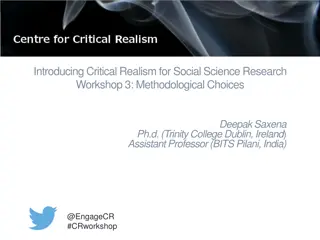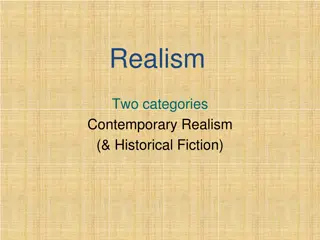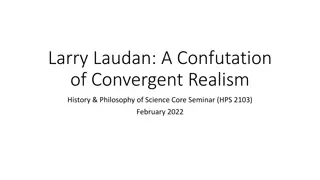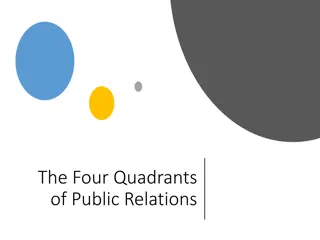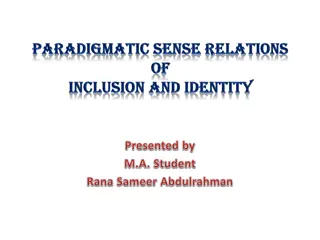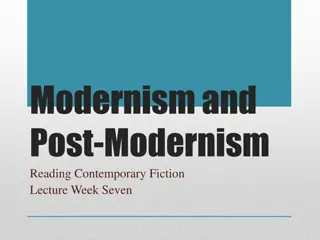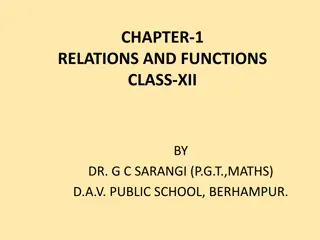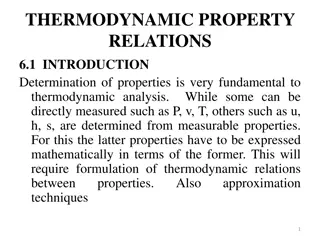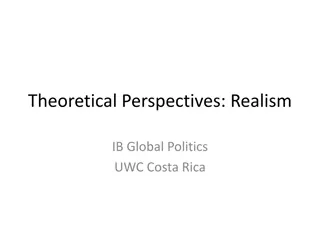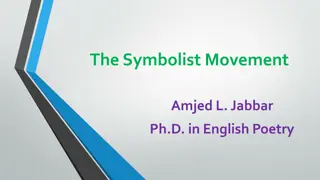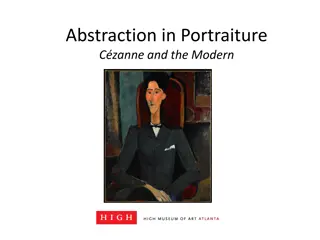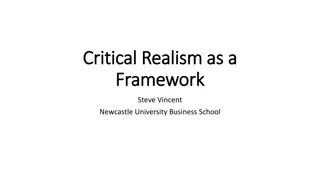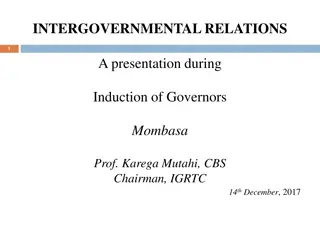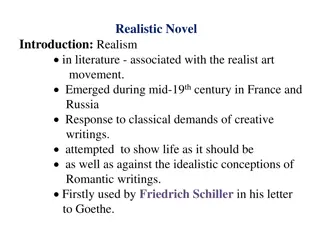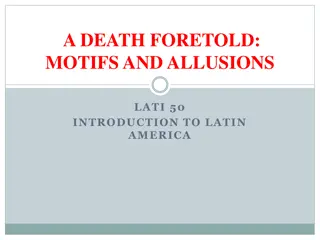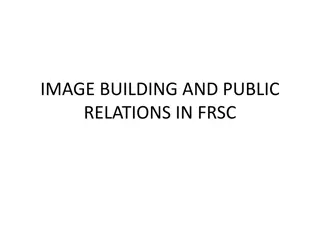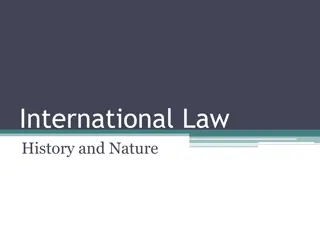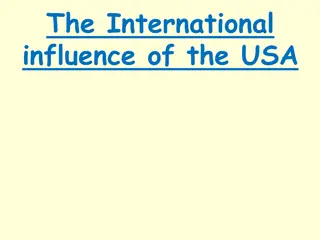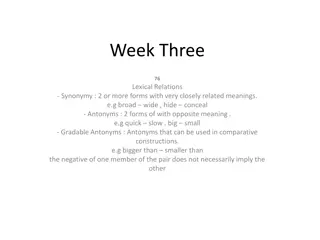Understanding Realism in International Relations
Realism, a prevalent theory in international relations, saw a shift post-World War I as idealism waned. The Briand-Kellogg Pact aimed to renounce war, yet conflicts like Japan's attack on Manchuria and Italy's Abyssinia incursion marked a turning point. Major theorists like Edward Hallett Carr and Hans Morgenthau emphasized the importance of power in international dynamics. Realism's basic tenets revolve around the selfish nature of states, the centrality of power, and the inherent conflict in international relations.
Download Presentation

Please find below an Image/Link to download the presentation.
The content on the website is provided AS IS for your information and personal use only. It may not be sold, licensed, or shared on other websites without obtaining consent from the author. Download presentation by click this link. If you encounter any issues during the download, it is possible that the publisher has removed the file from their server.
E N D
Presentation Transcript
Realism Associate Professor Dr. Cenk Ayg l
Realism It is the most wide-spread theory among other types, though it could not withstand criticisms and is mostly reformulated as neo-realism. After the 1st world War, idealism could no longer convince people. Some important episodes that could be linked to idealism are: Immanuel Kant s Perpetual Peace (1795), League of Nations disarmament moves and Briand-Kellogg Pact.
Briand-Kellogg Pact Also called, the General Treaty for the Renunciation of War or World Peace Act. Signed on August 28, 1928. Signatories are: the US, France, the UK, Italy, Japan, Weimar Germany as well as many other countries including Egypt, Ethiopia and Turkey. The major aim was to prohibit war as an instrument of national policy. What did change between 1928 and 1931-36?
Trumpets of war 1931- Japan attacks Manchuria 1936 Italy attacks Abyssinai 1936 Germany enters Rhineland => Practically the idealist period was over.
Major theorists Edward Hallett Carr: The Twenty Years Crisis: 1919-1939 => Disarmament does not bring security. One has to be strong. Hans Morgenthau: Politics among Nations (1948) => First scientific theory of realism and the relations among nations from the perspective of power.
Major theorists Thucydides- Peloponnesian Wars Macchiavelli the prince has to have power in order to protect his government Hobbes War of everybody against everybody in the state of nature .
Power What is power? Military, economic, technological, demographic, geographical etc. What is super power, big power, medium power, small power? Can super powers do anything as they wish? Are small powers totally exposed to the whimsey of the large powers?
Basic assumptions of realism Human nature is selfish and so are the states. States are central actors in IR. Power is the key to understanding international behavior. International relations are conflictual.
Key points of realism Sovereign states are the key actors States are motivated by a drive for power Since there is not a world state, the world is in a constant state of anarchy Since the states are always aggressive, there is conflict all the time. There might be a semblance of order because of shifting alliances among states. International institutions and international law are only effective if they are backed by a powerful state.
Key metaphors of realism Stag-hare analogy. Positive-sum, zero-sum game. Billiard ball model. Rational decision making in order to find the real interests of the state.
Rationality Rationality implies that the actor exercising power is a single entity that can think about its actions coherently and make choices => unitary actor assumption the states can identify their interests. the states can perform cost-benefit analysis (we tend to exeggerate gains and belittle costs) All states have basically the same values and interests.
Realism-Neo-realism Kenneth Waltz => hegemonic stability does not derive from the individual but the system But Power, balance of power, deterrence is as important.
